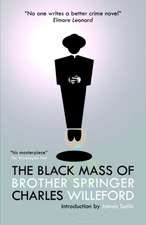Sideswipe: A Hoke Moseley Detective Thriller: Vintage Crime/Black Lizard Original
Autor Charles Ray Willeforden Limba Engleză Paperback – 28 feb 2005
A masterly tale of both mid-life crisis and murder, Sideswipe is a page-turning thriller packed with laughs, loaded with suspense, and featuring one of the truly original detectives of all time.
Preț: 102.62 lei
Nou
Puncte Express: 154
Preț estimativ în valută:
19.64€ • 20.65$ • 16.23£
19.64€ • 20.65$ • 16.23£
Carte disponibilă
Livrare economică 27 martie-10 aprilie
Preluare comenzi: 021 569.72.76
Specificații
ISBN-13: 9781400032488
ISBN-10: 1400032482
Pagini: 240
Dimensiuni: 136 x 203 x 17 mm
Greutate: 0.25 kg
Editura: Vintage Crime/Black Lizard
Seria Vintage Crime/Black Lizard Original
ISBN-10: 1400032482
Pagini: 240
Dimensiuni: 136 x 203 x 17 mm
Greutate: 0.25 kg
Editura: Vintage Crime/Black Lizard
Seria Vintage Crime/Black Lizard Original
Notă biografică
Charles Willeford was a highly decorated (Silver Star, Bronze Star, Purple Heart, Luxembourg Croix de Guerre) tank commander with the Third Army in World War II. He was also a professional horse trainer, boxer, radio announcer, and painter. Willeford, the author of twenty novels, created the Miami detective series featuring Hoke Moseley, which includes Miami Blues, Sideswipe, The Way We Die Now, and New Hope for the Dead. He died in 1988.
Extras
1
Detective-Sergeant Hoke Moseley, Miami Police Department, opened the front door of his house in Green Lakes, looked to the left and to the right. Then, barechested and barefooted, and wearing droopy white boxer shorts, he dashed out to pick up the Miami Herald from the front lawn. At six A.M. there was little need for this modesty. His neighbors were not up, and the eastern sky was barely turning a nacreous gray.
The paper was usually delivered by five-thirty each morning by an angry Puerto Rican in a white Toyota, whose erratic throw from his speeding car never found the same spot on the lawn. The driver was still angry, Hoke thought on those mornings when he stood behind the screen door waiting for the paper, because Hoke had returned the delivery man's stamped, self-addressed Christmas card without including a check or a five-dollar bill as a tip.
In the kitchen, Hoke pulled the slippery transparent cover from the paper, wadded it into a ball, and tossed it into the overflowing grocery bag that served as a garbage receptacle. He read the first paragraph in all of the front-page stories. Another American hostage had been killed by a Shiite skyjacker in Lebanon. The new fare for Metrorail would (perhaps) be a quarter, a half-dollar, or a dollar, but the newest fare system would probably depend on which station the rider used to board the train. An eighteen-year-old Haitian, a recent graduate of Miami-Norland High School, had miraculously managed to obtain an appointment to the U.S. Air Force Academy, and the congressman who had appointed him had just discovered that the boy was an illegal alien and was awaiting deportation at the Krome Detention Center. This item reminded Hoke of the tasteless joke Commander Bill Henderson had told him yesterday in the department's cafeteria.
"How can you tell when a Haitian's been in your back yard?"
"How?"
"Your mango tree's been stripped and your dog's got AIDS."
Hoke hadn't laughed. "That won't work, Bill."
"Why not? I think it's funny."
"No, it doesn't work, because everyone doesn't have a mango tree in his back yard, and not every Haitian has AIDS."
"Most of them have."
"No. I don't have a mango tree and neither do you."
"I mean AIDS. Most Haitians have AIDS."
"Not so. I think the figure's less than one-half of one percent."
"Go fuck yourself, Hoke." Henderson got up from the table and left the cafeteria without finishing his coffee.
Hoke's reaction to Henderson's crummy humor had been another sign, but Hoke hadn't spotted it and neither had Bill Henderson.
Ordinarily, when Bill told one of his jokes, Hoke at least grinned and said, "That's a good one," even when it was an out-of-context gag Bill had written down from the Johnny Carson monologue.
But Hoke hadn't smiled for more than a week, and he hadn't laughed at anything for almost a month.
Hoke sprinkled a liberal helping of Grape-Nuts into a plastic sieve and ran hot water from the tap over the cereal to make it soft enough that he could eat it without putting in his false teeth. When the cereal had softened sufficiently, he dumped it into a bowl and covered it with half-and-half. He then sliced a banana into the cereal, upended a pink packet of Sweet 'n Low over the mixture, and took the bowl and the newspaper out into the Florida room.
The sun porch had open, jalousied windows on three sides, and a hot, damp breeze blew through them from the lake. The Florida room faced a square lake of green milk that had once been a gravel quarry. The backs of all of the houses were toward the lake in this Miami subdivision called Green Lakes. Not all of the homeowners, or renters, had glassed-in porches like Hoke. Some of them had redwood decks in back; others had settled for do-it-yourself concrete patios and barbecue pits; yet all of the houses in Green Lakes had been constructed originally from the same set of blueprints. Except for the different colors they had been painted, and repainted, and the addition of a few carports, there was little discernible difference among them.
Hoke sat at a glass-topped wrought-iron table in a webbed patio chair and then realized that he didn't have a spoon. He returned to the kitchen, got a spoon, sat at the table again, and slowly gummed his Grape-Nuts and chopped bananas as he read the sports section. Ron Fraser, the Miami Hurricanes' baseball coach, who had coached the team to its second win in the college World Series in Omaha, said he might retire in three, maybe four more years, or he might even renegotiate a new contract. It must be hard, Hoke thought, for a sports writer to turn in something every day when there was nothing worthwhile to report.
Hoke then turned to Doonesbury, which was poking fun at Palm Beach for requiring mandatory ID cards for non-resident blue-collar workers on the island. Hoke was overwhelmed instantly with a formless feeling of nostalgia. Palm Beach was right across the inlet from Singer Island, and Singer Island, at the moment, was where Hoke wanted to be. Not in his father's huge four-bedroom house up there, on the Lake Worth intracoastal waterway, but in a hotel or motel room facing the sea where no one could find him and force him to read the fifteen new Incident Reports, with their fifteen attached Supplementary Reports, or "supps" as they were called in the department.
Hoke shook his head to clear it, glanced at the box scores, and noticed that the Cubs had dropped another game to the Mets--three so far in a three-game series. He threw the paper down in disgust. The Cubs, he thought, should be able to beat the Mets every game. What in hell was the matter with them? Every season it happened this way. The Cubs would be three or four games ahead of everybody, and then drop into a mid-season slump, and then down and down they would plummet into the supps, the supps, the supps . . .
The drapes were pulled back suddenly inside the master bedroom by Ellita Sanchez. Hoke turned slightly and waved languidly with his right hand. Ellita, still in her pink shorty nightgown and wearing a purple satin peignoir, smiled broadly and waved back. Then she waddled away from the sliding glass doors toward the bathroom, the one she shared with Hoke's daughters, Sue Ellen and Aileen--and with Hoke when he could find it unoccupied.
The morning had begun, another broiling, typically humid June day in Miami. It was Thursday, but it could just as easily have been a Tuesday or a Friday. The summer days were all alike, hot and blazing, with late-afternoon thundershowers that did nothing to relieve the heat and only added to the humidity. Ellita Sanchez, eight months pregnant and now on indefinite maternity leave from the department, would make a pot of Cuban coffee and bring it out in a Thermos to Hoke. She would have one quick cup with Hoke before returning to the kitchen to fry two eggs, sunny side up, and to toast four slices of Cuban bread that she would slather with margarine. Ellita's doctor had told her not to drink any more coffee until after the baby was born, but she drank the thick black Cuban brew anyway, at least one cup, and more often two.
"My baby," she explained to Hoke, "will be half Cuban, so I don't see how one or two little one-ounce cups of coffee can hurt him before he's born."
Ellita didn't know the father's last name. His first name was Bruce; she had picked him up for a one-night stand (her first, she had told Hoke) and gotten pregnant as a result. Bruce, whoever he was, did not know that he was going to be a father, and he had probably never thought of Ellita again after the two hours he spent with her in his Coral Gables apartment. A blond, blue-eyed insurance salesman twenty-five years old--that was almost all Ellita knew about Bruce. That much, and that he had two black tufted moles one inch below his left nipple. Ellita was thirty-two years old, and she was not only reconciled to having the unplanned baby, she was looking forward to it. If it was a boy, she was going to name him Pepe, after her uncle who had died in one of Castro's prisons; and if it was a girl, she was going to name her Merita, after her aunt, Pepe's wife, who still lived in Cuba. Ellita didn't care whether it was a boy or a girl, just as long as she had a healthy baby. She had prayed that her child would not have any tufted moles beneath its left nipple--in either case--but she was prepared to accept them if that was the will of God.
When her eggs and toast were ready, Ellita would bring her plate out to the glass table and rejoin Hoke. With her knife and fork she would fastidiously cut away the white part surrounding the barely cooked yellow yolks and eat the white part first. Then she would eat the yolks, scooping them up one at a time and shoveling them into her mouth without breaking them. This was the part Hoke could barely stand to watch, the runny yellow yolk oozing through Ellita's strong white teeth. But he couldn't say anything to Ellita about this practice, this disgusting habit, because she paid half the rent and half the utilities on the Green Lakes house. Ellita was Hoke's partner in the Homicide Division, and she would be his active partner again when her maternity leave was over and she came back to work, so Hoke could only give her criticism or suggestions as a police officer. His supervisory status did not extend to the home, to her eating habits, to her sleeping with earrings on, or to her wearing a layer of sprayed musk on top of her overdose of Shalimar perfume.
Hoke did not sleep with Ellita; he never had, and he never would. She was an investigator assigned to him as a junior partner in the Homicide Division, and that was that. But Hoke needed her in the house, and not just because he wouldn't have been able to swing all of the expenses by himself. Ellita had also helped him considerably with his two teenage daughters.
The girls had been living with Hoke for six months now, after being sent back to Hoke by their mother, who had moved from Vero Beach, Florida, to Glendale, California, to marry Curly Peterson, a black pinch hitter for the Dodgers. Sue Ellen, sixteen, had a job at the Green Lakes Car Wash and planned to drop out of school permanently when high school started again in September, so she could keep making monthly payments on her new Puch moped. Aileen, fourteen, had been helping around the house and had found a few baby-sitting jobs in the neighborhood, but she would be required by law to go back to school in the fall. Aileen wanted to quit school, too. Both girls adored Ellita Sanchez, and they ate their fried eggs each morning in imitation of Ellita. Hoke could not prevent the girls from continuing this disgusting habit; anything he said to them would be construed by Ellita as an indirect critique of her.
Hoke had discussed this dilemma with Bill Henderson, his previous partner, and Bill had told him that the only thing he could do was to eat his breakfast alone, preferably before Ellita and the girls got up in the morning. If he didn't watch them eating their eggs, and if he tried to put it out of his mind, perhaps, in time, he wouldn't think about it. And as a rule, this was what Hoke did. He would eat his Grape-Nuts out on the porch, and then when Ellita joined him with her plate, he would pour his coffee and take it into the living room, there to sit in his La-Z-Boy recliner in front of the television while he watched the morning news.
Hoke preferred to get up before the females anyway, so he could take his shot at the bathroom for his shower and shave. Once the rest of them were up, the wait for the bathroom could be interminable. One bathroom was not enough for four people, but that was the way the contractor had saved money when he built the Green Lakes subdivision in the mid-fifties, and there were several families much larger than Hoke's in the subdivision making do.
Ellita brought out the Thermos of coffee, an empty regular-sized cup, and a demitasse cup. She poured the coffee--four ounces for Hoke, one ounce for herself--and asked what was new in the paper.
"I'm finished with it." Hoke shrugged. He took his filled cup into the living room and sat in his La-Z-Boy, but he didn't switch on the television.
When Ellita had started her maternity leave, two weeks before, Major Brownley, the Homicide Division chief, had told Hoke he wouldn't be able to replace her. Hoke had Ellita and a young investigator named Teodoro Gonzalez (immediately nicknamed "Speedy" by the other detectives in the division) working for him on the "cold case" files. In the beginning this was supposed to have been a temporary assignment, but the three of them had so handily solved a half-dozen old murder cases that the major had made it a permanent assignment, with Hoke in charge. Without Ellita, and without any replacement for her, Hoke would have to depend solely on Gonzalez--a bright young investigator, but a man without a sense of direction--for most of the legwork. Gonzalez had a B.A. degree in economics from Florida International University in Miami, and had served only one year as a patrolman in Liberty City before being promoted to plainclothes investigator in the Homicide Division. He hadn't actually earned this promotion, but had been elevated because he was a Latin with a bachelor's degree. His black patrol sergeant in Liberty City had recommended Gonzalez for the promotion, but that was because the sergeant had wanted to get the man the hell out of his section. Despite the map in his patrol car, and the simple system of streets and avenues in Miami (avenues run north and south; streets run east and west), Gonzalez had spent half of his patrol hours lost, unable to locate the addresses he was dispatched to find. Gonzalez was willing and affable, and Hoke liked the kid, but Hoke knew that when he sent him out to do some legwork, an important function on cold cases, Gonzalez would spend most of his time lost somewhere in the city. Once Gonzalez had been unable to get to the Orange Bowl, even though he could see it from the expressway, because he couldn't find an exit that would get him there.
Detective-Sergeant Hoke Moseley, Miami Police Department, opened the front door of his house in Green Lakes, looked to the left and to the right. Then, barechested and barefooted, and wearing droopy white boxer shorts, he dashed out to pick up the Miami Herald from the front lawn. At six A.M. there was little need for this modesty. His neighbors were not up, and the eastern sky was barely turning a nacreous gray.
The paper was usually delivered by five-thirty each morning by an angry Puerto Rican in a white Toyota, whose erratic throw from his speeding car never found the same spot on the lawn. The driver was still angry, Hoke thought on those mornings when he stood behind the screen door waiting for the paper, because Hoke had returned the delivery man's stamped, self-addressed Christmas card without including a check or a five-dollar bill as a tip.
In the kitchen, Hoke pulled the slippery transparent cover from the paper, wadded it into a ball, and tossed it into the overflowing grocery bag that served as a garbage receptacle. He read the first paragraph in all of the front-page stories. Another American hostage had been killed by a Shiite skyjacker in Lebanon. The new fare for Metrorail would (perhaps) be a quarter, a half-dollar, or a dollar, but the newest fare system would probably depend on which station the rider used to board the train. An eighteen-year-old Haitian, a recent graduate of Miami-Norland High School, had miraculously managed to obtain an appointment to the U.S. Air Force Academy, and the congressman who had appointed him had just discovered that the boy was an illegal alien and was awaiting deportation at the Krome Detention Center. This item reminded Hoke of the tasteless joke Commander Bill Henderson had told him yesterday in the department's cafeteria.
"How can you tell when a Haitian's been in your back yard?"
"How?"
"Your mango tree's been stripped and your dog's got AIDS."
Hoke hadn't laughed. "That won't work, Bill."
"Why not? I think it's funny."
"No, it doesn't work, because everyone doesn't have a mango tree in his back yard, and not every Haitian has AIDS."
"Most of them have."
"No. I don't have a mango tree and neither do you."
"I mean AIDS. Most Haitians have AIDS."
"Not so. I think the figure's less than one-half of one percent."
"Go fuck yourself, Hoke." Henderson got up from the table and left the cafeteria without finishing his coffee.
Hoke's reaction to Henderson's crummy humor had been another sign, but Hoke hadn't spotted it and neither had Bill Henderson.
Ordinarily, when Bill told one of his jokes, Hoke at least grinned and said, "That's a good one," even when it was an out-of-context gag Bill had written down from the Johnny Carson monologue.
But Hoke hadn't smiled for more than a week, and he hadn't laughed at anything for almost a month.
Hoke sprinkled a liberal helping of Grape-Nuts into a plastic sieve and ran hot water from the tap over the cereal to make it soft enough that he could eat it without putting in his false teeth. When the cereal had softened sufficiently, he dumped it into a bowl and covered it with half-and-half. He then sliced a banana into the cereal, upended a pink packet of Sweet 'n Low over the mixture, and took the bowl and the newspaper out into the Florida room.
The sun porch had open, jalousied windows on three sides, and a hot, damp breeze blew through them from the lake. The Florida room faced a square lake of green milk that had once been a gravel quarry. The backs of all of the houses were toward the lake in this Miami subdivision called Green Lakes. Not all of the homeowners, or renters, had glassed-in porches like Hoke. Some of them had redwood decks in back; others had settled for do-it-yourself concrete patios and barbecue pits; yet all of the houses in Green Lakes had been constructed originally from the same set of blueprints. Except for the different colors they had been painted, and repainted, and the addition of a few carports, there was little discernible difference among them.
Hoke sat at a glass-topped wrought-iron table in a webbed patio chair and then realized that he didn't have a spoon. He returned to the kitchen, got a spoon, sat at the table again, and slowly gummed his Grape-Nuts and chopped bananas as he read the sports section. Ron Fraser, the Miami Hurricanes' baseball coach, who had coached the team to its second win in the college World Series in Omaha, said he might retire in three, maybe four more years, or he might even renegotiate a new contract. It must be hard, Hoke thought, for a sports writer to turn in something every day when there was nothing worthwhile to report.
Hoke then turned to Doonesbury, which was poking fun at Palm Beach for requiring mandatory ID cards for non-resident blue-collar workers on the island. Hoke was overwhelmed instantly with a formless feeling of nostalgia. Palm Beach was right across the inlet from Singer Island, and Singer Island, at the moment, was where Hoke wanted to be. Not in his father's huge four-bedroom house up there, on the Lake Worth intracoastal waterway, but in a hotel or motel room facing the sea where no one could find him and force him to read the fifteen new Incident Reports, with their fifteen attached Supplementary Reports, or "supps" as they were called in the department.
Hoke shook his head to clear it, glanced at the box scores, and noticed that the Cubs had dropped another game to the Mets--three so far in a three-game series. He threw the paper down in disgust. The Cubs, he thought, should be able to beat the Mets every game. What in hell was the matter with them? Every season it happened this way. The Cubs would be three or four games ahead of everybody, and then drop into a mid-season slump, and then down and down they would plummet into the supps, the supps, the supps . . .
The drapes were pulled back suddenly inside the master bedroom by Ellita Sanchez. Hoke turned slightly and waved languidly with his right hand. Ellita, still in her pink shorty nightgown and wearing a purple satin peignoir, smiled broadly and waved back. Then she waddled away from the sliding glass doors toward the bathroom, the one she shared with Hoke's daughters, Sue Ellen and Aileen--and with Hoke when he could find it unoccupied.
The morning had begun, another broiling, typically humid June day in Miami. It was Thursday, but it could just as easily have been a Tuesday or a Friday. The summer days were all alike, hot and blazing, with late-afternoon thundershowers that did nothing to relieve the heat and only added to the humidity. Ellita Sanchez, eight months pregnant and now on indefinite maternity leave from the department, would make a pot of Cuban coffee and bring it out in a Thermos to Hoke. She would have one quick cup with Hoke before returning to the kitchen to fry two eggs, sunny side up, and to toast four slices of Cuban bread that she would slather with margarine. Ellita's doctor had told her not to drink any more coffee until after the baby was born, but she drank the thick black Cuban brew anyway, at least one cup, and more often two.
"My baby," she explained to Hoke, "will be half Cuban, so I don't see how one or two little one-ounce cups of coffee can hurt him before he's born."
Ellita didn't know the father's last name. His first name was Bruce; she had picked him up for a one-night stand (her first, she had told Hoke) and gotten pregnant as a result. Bruce, whoever he was, did not know that he was going to be a father, and he had probably never thought of Ellita again after the two hours he spent with her in his Coral Gables apartment. A blond, blue-eyed insurance salesman twenty-five years old--that was almost all Ellita knew about Bruce. That much, and that he had two black tufted moles one inch below his left nipple. Ellita was thirty-two years old, and she was not only reconciled to having the unplanned baby, she was looking forward to it. If it was a boy, she was going to name him Pepe, after her uncle who had died in one of Castro's prisons; and if it was a girl, she was going to name her Merita, after her aunt, Pepe's wife, who still lived in Cuba. Ellita didn't care whether it was a boy or a girl, just as long as she had a healthy baby. She had prayed that her child would not have any tufted moles beneath its left nipple--in either case--but she was prepared to accept them if that was the will of God.
When her eggs and toast were ready, Ellita would bring her plate out to the glass table and rejoin Hoke. With her knife and fork she would fastidiously cut away the white part surrounding the barely cooked yellow yolks and eat the white part first. Then she would eat the yolks, scooping them up one at a time and shoveling them into her mouth without breaking them. This was the part Hoke could barely stand to watch, the runny yellow yolk oozing through Ellita's strong white teeth. But he couldn't say anything to Ellita about this practice, this disgusting habit, because she paid half the rent and half the utilities on the Green Lakes house. Ellita was Hoke's partner in the Homicide Division, and she would be his active partner again when her maternity leave was over and she came back to work, so Hoke could only give her criticism or suggestions as a police officer. His supervisory status did not extend to the home, to her eating habits, to her sleeping with earrings on, or to her wearing a layer of sprayed musk on top of her overdose of Shalimar perfume.
Hoke did not sleep with Ellita; he never had, and he never would. She was an investigator assigned to him as a junior partner in the Homicide Division, and that was that. But Hoke needed her in the house, and not just because he wouldn't have been able to swing all of the expenses by himself. Ellita had also helped him considerably with his two teenage daughters.
The girls had been living with Hoke for six months now, after being sent back to Hoke by their mother, who had moved from Vero Beach, Florida, to Glendale, California, to marry Curly Peterson, a black pinch hitter for the Dodgers. Sue Ellen, sixteen, had a job at the Green Lakes Car Wash and planned to drop out of school permanently when high school started again in September, so she could keep making monthly payments on her new Puch moped. Aileen, fourteen, had been helping around the house and had found a few baby-sitting jobs in the neighborhood, but she would be required by law to go back to school in the fall. Aileen wanted to quit school, too. Both girls adored Ellita Sanchez, and they ate their fried eggs each morning in imitation of Ellita. Hoke could not prevent the girls from continuing this disgusting habit; anything he said to them would be construed by Ellita as an indirect critique of her.
Hoke had discussed this dilemma with Bill Henderson, his previous partner, and Bill had told him that the only thing he could do was to eat his breakfast alone, preferably before Ellita and the girls got up in the morning. If he didn't watch them eating their eggs, and if he tried to put it out of his mind, perhaps, in time, he wouldn't think about it. And as a rule, this was what Hoke did. He would eat his Grape-Nuts out on the porch, and then when Ellita joined him with her plate, he would pour his coffee and take it into the living room, there to sit in his La-Z-Boy recliner in front of the television while he watched the morning news.
Hoke preferred to get up before the females anyway, so he could take his shot at the bathroom for his shower and shave. Once the rest of them were up, the wait for the bathroom could be interminable. One bathroom was not enough for four people, but that was the way the contractor had saved money when he built the Green Lakes subdivision in the mid-fifties, and there were several families much larger than Hoke's in the subdivision making do.
Ellita brought out the Thermos of coffee, an empty regular-sized cup, and a demitasse cup. She poured the coffee--four ounces for Hoke, one ounce for herself--and asked what was new in the paper.
"I'm finished with it." Hoke shrugged. He took his filled cup into the living room and sat in his La-Z-Boy, but he didn't switch on the television.
When Ellita had started her maternity leave, two weeks before, Major Brownley, the Homicide Division chief, had told Hoke he wouldn't be able to replace her. Hoke had Ellita and a young investigator named Teodoro Gonzalez (immediately nicknamed "Speedy" by the other detectives in the division) working for him on the "cold case" files. In the beginning this was supposed to have been a temporary assignment, but the three of them had so handily solved a half-dozen old murder cases that the major had made it a permanent assignment, with Hoke in charge. Without Ellita, and without any replacement for her, Hoke would have to depend solely on Gonzalez--a bright young investigator, but a man without a sense of direction--for most of the legwork. Gonzalez had a B.A. degree in economics from Florida International University in Miami, and had served only one year as a patrolman in Liberty City before being promoted to plainclothes investigator in the Homicide Division. He hadn't actually earned this promotion, but had been elevated because he was a Latin with a bachelor's degree. His black patrol sergeant in Liberty City had recommended Gonzalez for the promotion, but that was because the sergeant had wanted to get the man the hell out of his section. Despite the map in his patrol car, and the simple system of streets and avenues in Miami (avenues run north and south; streets run east and west), Gonzalez had spent half of his patrol hours lost, unable to locate the addresses he was dispatched to find. Gonzalez was willing and affable, and Hoke liked the kid, but Hoke knew that when he sent him out to do some legwork, an important function on cold cases, Gonzalez would spend most of his time lost somewhere in the city. Once Gonzalez had been unable to get to the Orange Bowl, even though he could see it from the expressway, because he couldn't find an exit that would get him there.
Recenzii
“Extraordinarily winning . . . pure pleasure. . . . Mr. Willeford never puts a foot wrong.” —The New Yorker
“A blend of gripping action and wry off-beat humor.” —The Washington Post
“No one writes a better crime novel than Charles Willeford.” —Elmore Leonard
“Willeford has a marvelously deadpan way with losers on both sides of the law.” —Philadelphia Inquirer
“Extraordinarily winning . . . pure pleasure . . . Mr. Willeford never puts a foot wrong.” --The New Yorker
“[A] blend of gripping action and wry off-beat humor.” --The Washington Post
“No one writes a better crime novel than Charles Willeford.” --Elmore Leonard
“Nobody writes like Charles Willeford . . . He is an original–funny, weird and wonderful.” --James Crumley
“If you are looking for a master’s insight into the humid decadence of South Florida and its polyglot tribes, nobody does that as well as Mr. Willeford.” --The New York Times Book Review
“Hoke Moseley is a magnificently battered hero. Willeford brings him to us lean and hard and brand-new.” --Donald E. Westlake
“Willeford has a marvelously deadpan way with losers on both sides of the law.” --The Philadelphia Inquirer
“A blend of gripping action and wry off-beat humor.” —The Washington Post
“No one writes a better crime novel than Charles Willeford.” —Elmore Leonard
“Willeford has a marvelously deadpan way with losers on both sides of the law.” —Philadelphia Inquirer
“Extraordinarily winning . . . pure pleasure . . . Mr. Willeford never puts a foot wrong.” --The New Yorker
“[A] blend of gripping action and wry off-beat humor.” --The Washington Post
“No one writes a better crime novel than Charles Willeford.” --Elmore Leonard
“Nobody writes like Charles Willeford . . . He is an original–funny, weird and wonderful.” --James Crumley
“If you are looking for a master’s insight into the humid decadence of South Florida and its polyglot tribes, nobody does that as well as Mr. Willeford.” --The New York Times Book Review
“Hoke Moseley is a magnificently battered hero. Willeford brings him to us lean and hard and brand-new.” --Donald E. Westlake
“Willeford has a marvelously deadpan way with losers on both sides of the law.” --The Philadelphia Inquirer
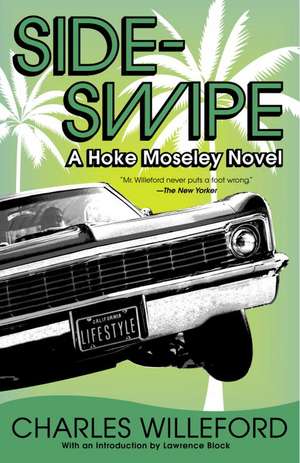







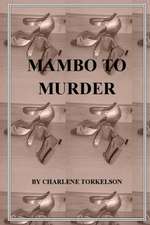
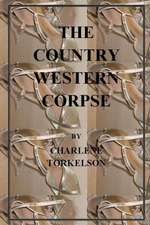
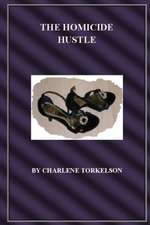
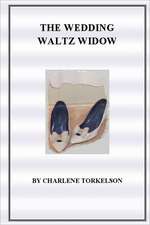
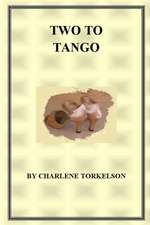
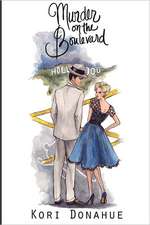
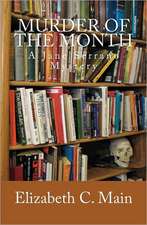
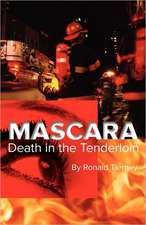
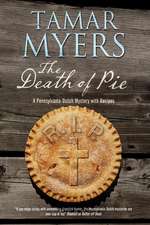
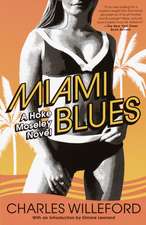

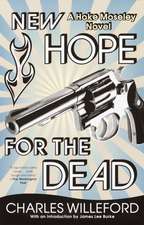
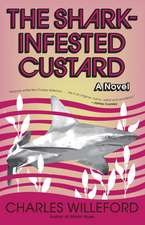
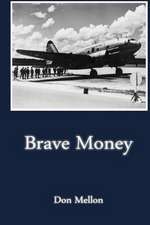
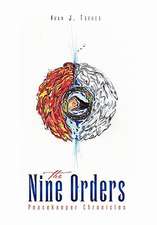
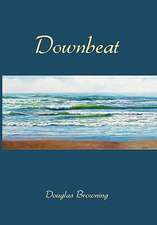
![[Still Just] Four Liverpool Lads](https://i3.books-express.ro/bt/9781466488281/still-just-four-liverpool-lads.jpg)






